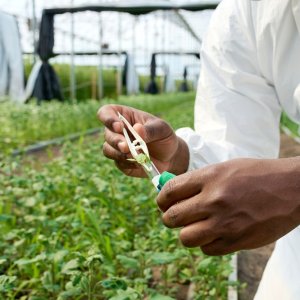
US Disappointed as Mexico Retains Partial Ban on GM Corn
 By Eliza Galeana | Junior Journalist & Industry Analyst -
Wed, 02/22/2023 - 13:46
By Eliza Galeana | Junior Journalist & Industry Analyst -
Wed, 02/22/2023 - 13:46
Among this week’s top stories, the US said it was disappointed in Mexico’s decision to retain the ban on GM corn for human consumption. Meanwhile, FEMSA will sell its Heinekens shares to focus on its retail division firms.
Ready for more? Here is your weekly roundup!
US Still Not Happy About GM Corn Trade Conditions
On Feb. 13, 2023, the Mexican government issued a new decree on glyphosate and genetically modified corn through which it allowed the use of the grain for animal feed and industrial manufacturing but not for human consumption. In response to the decree, the US said it was disappointed in the Mexican government's decision, and that they would carefully review the details of the new decree to ensure the science and rules-based trade commitment between the countries remains firm.
FEMSA and Heineken Part Ways Following Divestment Bid
On Feb. 15, 2023, Fomento Economico Mexicano announced that it would sell the shares it holds in Heineken in a divestment bid. As part of its new business strategy, FEMSA will focus on its retail division, featuring businesses like OXXO, pharmacies and gas stations. Daniel Rodríguez, CEO, FEMSA, said the company is convinced the best way to continue to create value in the firm is by exclusively focusing on key businesses where it has built leading platforms with proven capabilities and financial strength.
Sugar Cane Industry Grows Stronger
The Ministry of Agriculture and Rural Development and the National Committee for the Sustainable Development of Sugar Cane inaugurated the Sugar Cane Center for Scientific and Technological Research (CICTCAÑA). According to Aristóteles Vaca Pérez, Agribusiness expert, this will have a positive outcome that will increase the technological and digital tools in the sector and improve the harvest sustainably. On the other hand, in recent years, the sugar industry has been affected by the government's initiatives to reduce sugar consumption in processed foods, including the front labeling measure.
Food Companies Used Influencers to Sell Junk Food to Children
Tec-Check and Consumer Power, both consumer protection organizations, published a report documenting how influencers advertise the consumption of junk food to children. The study, entitled Influencer Junk Food, highlighted ad campaigns by eight large companies, including Coca-Cola and Nestlé, that have hired influencers to sponsor their products on social media. Consumer and child protection advocates called for stronger regulations and a possible ban on advertising products that already carry mandatory labels warning of excessive sugar, calories or saturated fats.
Navigating Communal Lands for Investment a Delicate Matter
Odilisa Gutiérrez, Founding Partner and Chief Executive Officer, Odilisa Gutiérrez Mendoza & Associates, talks about the challenges faced by investors seeking to develop projects on social land in Mexico, which includes ejidos and communities. For investors to carry out projects within social lands, they must follow legal procedures and assure that the project will adhere to the law and be sustainably developed.
Growing an Impact Startup in Mexico in the 2020s: Good Timing?
Chief is a company that connects food stores with consumers, providing a solution to the food waste problem while also offering a great value proposition to both parties. Kim Durand, CEO and Founder of Cheaf, writes about the challenges his company has faced while building and growing a tech-for-good startup in Mexico. These challenges include low awareness for issues like food waste and climate change, lack of government regulations and incentives for environmentally friendly practices and good timing.
















